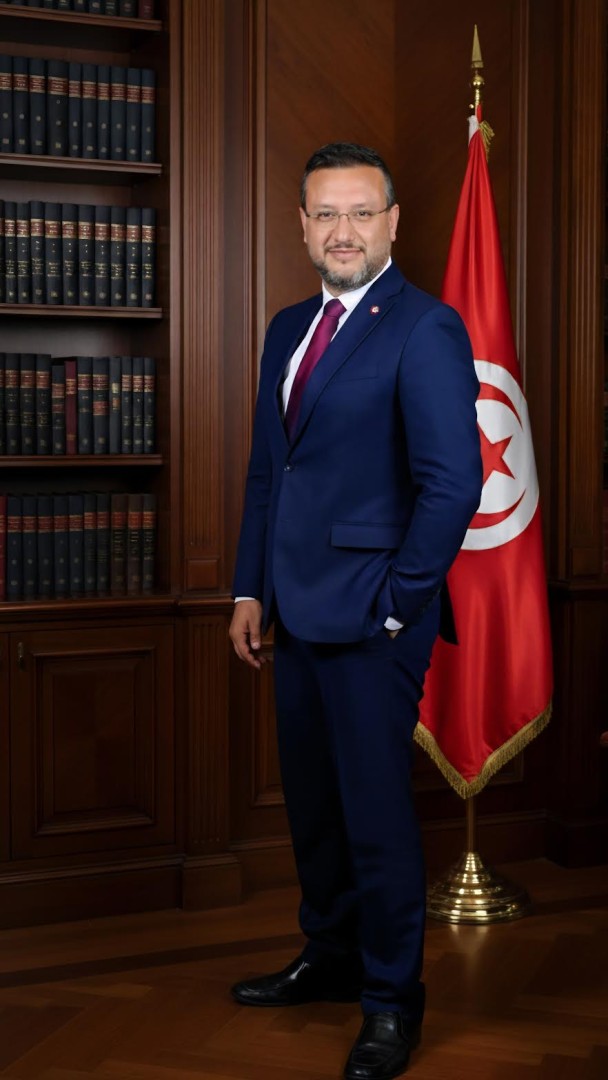Financial News
From Airwaves to Africa: Dr. Nizar Chaari’s Journey from Media Icon to Youth Empowerment Leader

Tunis, Tunisia - Dr. Nizar Chaari’s life is proof that influence can transcend the spotlight. Once celebrated as one of Tunisia’s most recognizable television and radio hosts, he has since emerged as a driving force in African youth empowerment. With a career that began behind the microphone in 1993 and later evolved into leadership on a continental stage, Chaari has reinvented himself from media icon to changemaker. Today, as the founder of EPIK Leaders, he is shaping a pan-African movement that champions civic engagement, innovation, and the next generation of leaders. His journey reveals not only the power of communication, but also the responsibility of turning visibility into vision.
I sat down with Dr. Nizar Chaari, and this is what they had to say.
You began your career in radio back in 1993 at Radio Sfax. Looking back, how did those early media experiences shape the leader you are today?
My early days in radio were about more than just broadcasting, they were about connection. At Radio Sfax, I learned to listen to people's stories, to understand their dreams, and to give voice to their concerns. The microphone became a tool for empathy and communication, not just a stage for performance. This experience taught me that true leadership is about service, it’s about amplifying the voices of others, not your own. It was the foundation of everything that came after.
You were once celebrated as Tunisia’s “best host.” What motivated you to step away from a successful media career and pivot towards civil society and youth development?
The decision to leave mainstream media was a profound one, but it was driven by a single realization: my purpose had evolved. After years of interviewing politicians and business leaders, I saw a disconnect between the national conversation and the reality on the ground. I felt a compelling need to move from observer to actor. I realized that the greatest stories weren't being told on television, they were being written in the lives of young people who needed a platform to build, not just to speak. Civil society offered a direct, hands-on way to make a tangible difference, to build a future, not just report on it.
In 2009, you acquired Tunivisions magazine, and later founded the Tunivisions Foundation, which established over 450 student clubs. What impact did those clubs have on Tunisia’s youth after the revolution?
The Tunivisions Foundation clubs were a direct response to the energy and uncertainty of the 2011 revolution. At that time, many young people were disillusioned, they had fought for change but felt excluded from the political process. Our clubs became a crucial space for them to transition from protest to active citizenship. They weren't just about networking, they were laboratories for civic engagement. Young Tunisians learned to organize events, lead projects, and find solutions to local problems. They discovered their power to shape their own communities, which was a vital step toward healing and rebuilding the country.
Many know you as a media personality turned social entrepreneur. What was the defining moment that pushed you toward pan-African leadership?
The defining moment came when I traveled across Africa, from Abuja to Casablanca. I saw the same challenges, youth unemployment, limited opportunities, a lack of faith in traditional institutions, but I also saw the same incredible resilience and ambition. It became clear that the challenges facing Tunisia were not unique, they were shared by a continent brimming with potential. I realized that our work couldn't be confined to one country. To truly empower African youth, we had to create a united, pan-African movement, a network where young leaders could share ideas, collaborate on solutions, and build a future together. This realization was the genesis of EPIK Leaders.
With EPIK Leaders, you’ve launched initiatives like the “Welcome Fest” and the EPIK Leaders Summer Academy. How do these programs differ from traditional youth development projects in Africa?
Our programs are different because we don't just teach leadership, we build an ecosystem of action. The "Welcome Fest" isn't a simple student event, it's a 45-day national tour to establish 100 student leadership clubs. These clubs aren't passive; they are the engines of our movement. The EPIK Leaders Summer Academy is not a traditional boot camp; it's an immersive experience rooted in the "learning by doing" philosophy. We use innovative psychometric tools to help participants understand their unique strengths and how they can best contribute to a team. We don't just provide knowledge; we provide a platform for tangible, real-world impact and collaboration.
The Africa Future Leaders Day gathered participants from 15 countries. What did you learn from bringing together such a diverse group of young people?
Bringing together young leaders from 15 countries for Africa Future Leaders Day was a transformative experience. What I learned most was that while our challenges may seem vast and complex, the solutions often lie in our shared humanity. The young people discovered they had more in common than they had differences. They realized that a young innovator in Senegal can solve a problem for a student in Morocco, and vice versa. It reinforced our belief that when we remove borders and create a space for dialogue and collaboration, we unleash an unstoppable force of innovation and solidarity.
EPIK Leaders has ambitious plans for 2025–2026. What excites you most about this next phase of the organization’s work?
The next phase for EPIK Leaders, our 2025–2026 plan, is our most ambitious yet. We're launching the "Welcome Fest" to create 100 new student leadership clubs across Africa. We're also hosting the Arab African Summit on Non-Profit Financing to address one of the biggest challenges for civil society. What excites me most is our focus on building a sustainable, interconnected network. We're not just creating more leaders; we're building a community that will last for generations, culminating in the first-ever EPIK 100 Award to recognize Africa's most outstanding young talents.
Having worked in both media and civil society, how do you leverage communication skills to inspire and empower young leaders across Africa?
My media background is the cornerstone of my work today. As a host, I learned to simplify complex ideas, to tell compelling stories, and to build trust with an audience. I now use those same skills to craft a powerful narrative for African leadership. I use storytelling to connect with young people, to show them that their potential is limitless. Whether it's through public speaking, social media, or our programs, I work to frame the conversation around solutions, not just problems. My goal is to use communication to shift mindsets from despair to action.
You’ve worn many hats—journalist, entrepreneur, foundation founder, and now pan-African leader. What’s been the most challenging transition in your journey?
The most challenging transition wasn't from media to civil society; it was from being a personality to a leader. As a TV host, your success is often measured by your individual charisma and influence. But as a leader, your success is measured by the growth and success of the people around you. It required a fundamental shift in ego and perspective, moving from a focus on personal success to collective impact. It was about learning to step back and let the new generation take center stage.
Looking ahead, what is your long-term vision for African leadership, and how do you hope your work will influence the next generation?
My long-term vision for African leadership is one of sovereignty and self-sufficiency. I believe that the future of this continent will not be built by external aid or foreign policies, but by a new generation of leaders who are educated, empowered, and deeply committed to their communities. I want to see a future where Africa's greatest resource isn't its minerals, but its young people. My hope is that our work will inspire a generation that sees leadership not as a position of power, but as a commitment to serve, a generation that will build a stronger, more united, and more prosperous Africa for all.
Media Contact
Company Name: EPIK Leaders
Contact Person: Media Manager
Email: Send Email
Country: Tunisia
Website: https://epikleaders.org/
More News
View More





Quotes delayed at least 20 minutes.
By accessing this page, you agree to the following
Privacy Policy and Terms Of Service.



